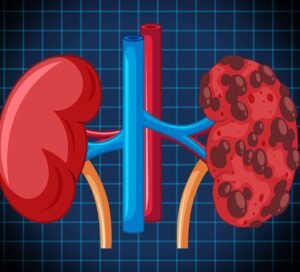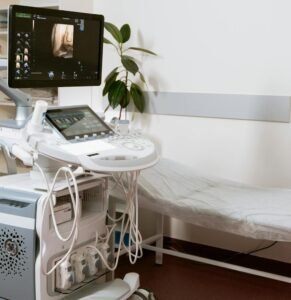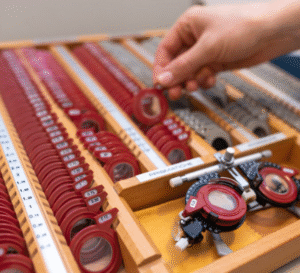Overview
Urinary retention is the inability to empty the bladder completely, which can be acute or chronic. It affects both men and women but is more common in older men due to prostate enlargement.
➤ Urinary retention can cause discomfort, pain, urinary tract infections, and kidney damage if untreated.
➤ Causes may include obstruction of the urinary tract, nerve problems, medications, or weak bladder muscles.
➤ In Korea, specialized urology centers provide diagnostics, minimally invasive treatments, and surgical interventions to restore normal bladder function.
Key Facts
► Definition: Partial or complete inability to pass urine from the bladder.
► Prevalence: More common in older men; can affect both genders at any age.
► Symptoms: Difficulty urinating, weak stream, frequent urination, bladder discomfort, nocturia.
► Risk factors: Benign prostatic hyperplasia (BPH), urethral strictures, neurological disorders, medications, infections.
► Treatment in Korea: Catheterization, medication, minimally invasive surgery, and lifestyle modifications.
What is Urinary Retention?
Urinary retention occurs when the bladder cannot empty properly, either due to obstruction or weakened bladder muscles.
➔ Acute urinary retention is sudden and painful, requiring immediate medical attention.
➔ Chronic urinary retention develops gradually, often without significant discomfort, but can lead to complications over time.
➔ Retention may result from structural blockages, nerve dysfunction, or medications that impair bladder function.
What Symptoms Are Related to Urinary Retention?
Symptoms vary depending on whether retention is acute or chronic:
→ Acute retention: Sudden inability to urinate, severe lower abdominal pain, and urgency with little or no urine output.
→ Chronic retention: Difficulty starting urination, weak urine stream, dribbling, frequent urination, and nocturia.
→ Bladder distention: Swelling or fullness in the lower abdomen.
→ Urinary tract infections may develop due to stagnant urine.
→ Fatigue or discomfort from repeated incomplete emptying.
→ In severe cases, kidney function may decline due to back pressure on the urinary tract.
Causes / Possible Causes of Urinary Retention
Obstructive Causes
➤ Benign prostatic hyperplasia (BPH) in men compresses the urethra.
➤ Urethral strictures or bladder stones obstruct urine flow.
➤ Tumors in the bladder, urethra, or pelvic area.
Neurological Causes
➔ Multiple sclerosis, Parkinson’s disease, stroke, or spinal cord injury can disrupt nerve signals to the bladder.
➔ Diabetic neuropathy may impair bladder sensation and contraction.
Medications
→ Anticholinergics, antihistamines, certain antidepressants, and sedatives may inhibit bladder contraction.
Post-Surgical Causes
► After anesthesia or pelvic surgery, temporary urinary retention can occur.
Other Contributing Factors
➤ Severe constipation or fecal impaction exerting pressure on the bladder.
➤ Infections or inflammation of the urinary tract affecting bladder function.
When Should I See My Doctor?
Immediate consultation is needed if urinary retention is accompanied by:
➤ Sudden inability to urinate, severe abdominal pain, or swelling.
➤ Fever, chills, or signs of infection.
➤ Recurrent urinary retention episodes interfering with daily life.
➤ Blood in urine (hematuria) or abnormal urine color.
➤ Symptoms persisting despite lifestyle adjustments or hydration.
Acute urinary retention is a medical emergency and requires urgent intervention to prevent kidney damage.
Care and Treatment
Self-Care and Monitoring
► Maintain adequate hydration but avoid excessive fluid intake at once.
► Monitor for early symptoms like difficulty starting urination or weak stream.
► Avoid medications that may increase urinary retention risk unless prescribed.
Medical Treatments
➔ Catheterization to relieve acute retention and empty the bladder.
➔ Medications such as alpha-blockers to relax the prostate or bladder neck.
➔ Antibiotics if urinary retention is complicated by infection.
➔ Treat underlying causes like constipation or inflammation.
Advanced and Surgical Interventions
→ Transurethral resection of the prostate (TURP) for men with BPH.
→ Urethral dilation or stent placement for strictures.
→ Surgical removal of tumors, stones, or obstructions.
→ Neuromodulation therapy for nerve-related retention in select cases.
Treatment Options in Korea
South Korea provides advanced urology care combining diagnostics, minimally invasive procedures, and follow-up care:
Diagnosis in Korea
➤ Urinalysis, urine culture, and blood tests to detect infection or kidney impairment.
➤ Ultrasound or CT scan to assess bladder, urethra, and kidney structure.
➤ Urodynamic studies to evaluate bladder muscle function and nerve control.
Non-Surgical Care
► Medication management for prostate enlargement or bladder dysfunction.
► Temporary catheterization for acute cases.
► Lifestyle modifications, including timed voiding and managing constipation.
Surgical & Advanced Interventions
➔ Minimally invasive procedures for BPH or urethral obstruction.
➔ Endoscopic stone removal or tumor excision.
➔ Neuromodulation therapy for chronic retention due to nerve disorders.
Rehabilitation and Lifestyle Support
→ Patient education on bladder health and early warning signs.
→ Follow-up to prevent recurrence and monitor kidney function.
→ Integration of urology, nephrology, and rehabilitation specialists for comprehensive care.
Korean hospitals combine cutting-edge technology, expert physicians, and patient-centered care, ensuring effective treatment for urinary retention and prevention of complications.













